Unfold Prosperity
We shape our procurement and product range responsibly and create a high level of transparency along the entire value chain, with the aim of generating added value for our customers. In this way, we are able to supply our customers around the world with affordable, healthy, safe, high-quality products and suitable services. And with products that are produced in a socially responsible, environmentally sound and resource-friendly manner. In doing so, we are also strengthening local producer structures and regional development. Additionally, we pass our expertise in the fields of resource management, procurement and product range composition on to our partners, independent entrepreneurs, in order to generate long-term business perspectives and a competitive edge for them and for us. This is how we secure our future and promote sustainable procurement processes and responsible consumption. This contributes to the Sustainable Development Goals, such as SDG 12.
To build a future in the countries
‘Ugly but tasty‘ in Bulgaria
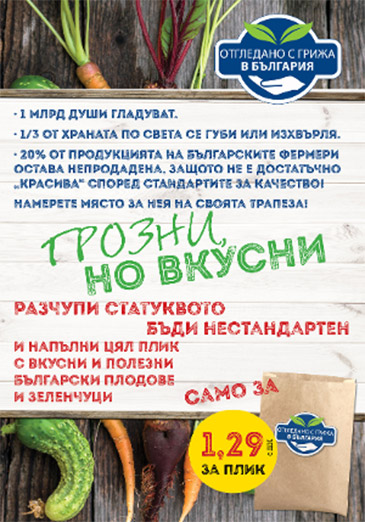
Around a fifth of the Bulgarian fruit and vegetable harvest does not reach the shops because it does not meet trade standards in terms of shape, colour or size – even though there is nothing wrong with the flavour. METRO is tackling food waste caused by post-harvest losses through its new ‘Ugly but tasty’ initiative. For a low set price, METRO customers can fill a plastic-free bag with their choice of ‘imperfect’ fruit and vegetables. We also pay visits to farmers and provide them with information and training on this topic. The campaign is part of the wider ‘Nurtured with care in Bulgaria’ initiative. It helps increase the marketability of these ‘imperfect’ products and, as a result, the earnings potential of the participating producers. There are plans to extend the campaign to the rest of the product range.
Star Farm in China and Pakistan
Since 2007, our Star Farm activities have been helping farmers and suppliers in China meet internationally recognised quality standards, such as GlobalG.A.P., HACCP and the International Food Standard (IFS), and improve traceability and transparency in the supply chain. Star Farm is an agricultural consultancy that belongs to METRO and specialises in quality assurance systems and traceability solutions for agricultural produce. The company was set up in 2007 by METRO Wholesale in cooperation with the Chinese Ministry of Commerce and local authorities. The aim of Star Farm’s activities is to increase the proportion of goods sourced directly from producers, advance productivity and effectiveness in agricultural production, and improve food safety by modernising the supply chain. An integrated traceability solution for food products was introduced for this purpose in 2009. Customers can use the system to trace the origin of agricultural products in detail.
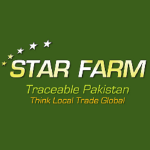
In 2011, a similar partnership was set up in Pakistan, which is now also helping to obtain the best products from the farmers and to pass on a high degree of transparency to the customers through the direct supplier relationship. As a sister organisation of METRO Pakistan, Star Farm is working on the same challenges to enhance the food supply chain through sustainable and innovative methods. In 2018, the Punjab Skills Development Fund (financed by DFID, UKaid) launched a special programme called ‘Big Push for Rural Economy – Agriculture Sector’. Over 12,000 people from 60 selected villages in 4 districts of southern Punjab (Bahawalpur, Bahawalnagar, Lodhran and Muzaffargarh) were trained in a number of agricultural skills. Star Farm pledged 150 agricultural specialists to teach comprehensive theoretical and practical aspects of pre- and post-harvest techniques, plant protection, best crop management practices, ideal irrigation practices and fertiliser recommendations. Another primary objective was to mobilise the farming community and large numbers of unemployed young people. For this purpose, Star Farm Pakistan set up 110 fully equipped training centres in the villages and demonstration plots for growing wheat and cotton, where the farmers can try out their newly acquired skills and apply best practices. Knowing that women are an integral part of the community and that involving them in such projects can have a significant impact on the economy, the organisers also arranged for 1,800 women (30 from each village) to receive training in skills such as kitchen gardening and food preparation techniques in their homes. Overall, over the past 2 financial years, we have trained over 20,000 farmers in China and Pakistan, including 5,000 women in Pakistan.
Sustainable Procurement Meeting in France
The first Sirha Green trade fair in Lyon in 2018 was all about sustainability in the food industry. To mark the occasion, we organised a Sustainable Procurement Meeting with over 60 of our own-brand suppliers. The aim of the meeting was to work with our suppliers to identify distinguishing features of sustainable business so as to help equip our joint business operations for the future. During the meeting, we introduced 15 fact sheets containing sustainability commitments relating to 5 areas. These are intended to serve as guidelines for suppliers concerning METRO’s requirements, but also support their own business activities. The 5 areas are: health, environment and biodiversity, compliance, animal welfare, and taste and culinary know-how. In various roundtable discussions, suppliers have shared their experiences of how they have tackled and overcome practical challenges in implementing sustainability in their business.
Sustainable procurement in India
In India, METRO works closely with the Food Chain Partnership, a Bayer Crop Science initiative. It brings together farmers, wholesalers, retailers and other stakeholders in the value chain to promote sustainable farming in emerging and developing countries and the supply of safe food. Local structures are strengthened, particularly in weaker economic regions. A key component of the partnership in India involves training the farmers on quality and environmental aspects. The current focus is on growing vegetables, especially tomatoes, lettuce, cauliflower and cucumbers. We aspire to organise 80% of our procurement through central collection points and platforms that follow the initiative’s guidelines.
Pilot project with small and medium suppliers in Russia
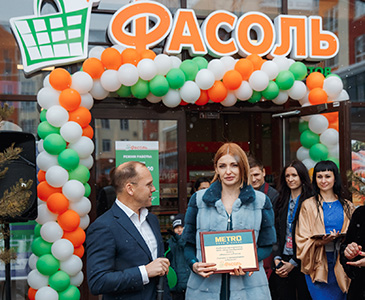
A pilot project in the Moscow and Krasnodar areas aims to support small and medium-sized food businesses. METRO is collaborating on this project with local authorities, Sberbank, the biggest Russian financial services company, and the International Finance Corporation (IFC). The aim is to use best practice to promote the development of competitive small businesses. Retailers with 50 to 150 square metres of store area are given the opportunity to run an efficient, sustainable Fasol franchise outlet – with METRO as a strategic partner. 47 Fasol branches have already opened in the Krasnodar area and 108 in Moscow. The aim is to have up to 120 in Krasnodar and up to 590 in Moscow by the end of 2020. In addition, recognised industry experts train commercial customers from the hotel and food service industry on strategy, marketing and HR topics. 20 restaurants have already taken part in the training programme.
Another part of the programme is aimed directly at local suppliers, specifically small and medium-sized food producers. Training sessions and advice help the participants comply with the criteria of the Global Food Safety Initiative (GFSI). The multi-stage programme includes audits, 3-day courses, on-site advice, and certification for suppliers that want it. 6 suppliers in the Moscow area have already completed audits and training courses. There are plans to extend the programme to other regions.
Traceability
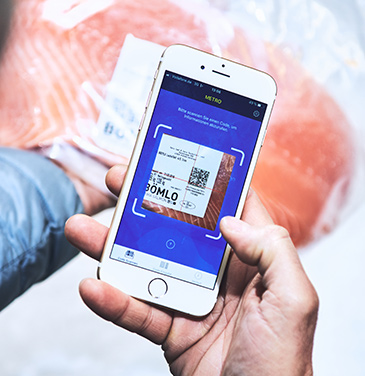
We champion product traceability in order to guarantee product safety and quality and to help customers and suppliers comply with legal requirements. We also help ensure that resources are protected and illegal activities avoided. Therefore, together with other retailers, renowned partners and the standardisation organisation GS1 Germany, we have developed our cross-industry international traceability solution which allows products to be traced all the way from their origins to the customer’s purchase. It allows us to collect relevant data – regarding products and suppliers, for instance – electronically and merge it via a software platform. This makes access to this information considerably easier and more reliable for customers and other users.
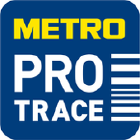
It also ensures that our commercial customers can in turn provide their customers with information about the origin and nature of the goods they sell. Approximately 800 fish products and around 2,000 meat products can currently be traced in Germany with the PRO TRACE app. Various other METRO national subsidiaries and our International Trading Offices have also joined the scheme since it launched in 2015. Following regional expansion in the fish and meat product ranges, in financial year 2017/18 we successfully tested an improved solution for recording internal processes as well. In addition, we created a compact in-house solution that offers a special service, particularly to METRO’s own-brand producers.
Working with our suppliers
We also ensure transparency with respect to the resources used and the procurement of products by means of direct relations with our business partners. In order to offer our customers in all markets an attractive, unique and responsible product range characterised by careful choices, variety, freshness and quality, we stay in close contact with our suppliers – not only at the local level in our METRO countries, but also via our International Trading Offices, which manage centralised procurement for the METRO Wholesale national subsidiaries. We operate 6 International Trading Offices for the sourcing of food items in Boston, Concarneau, Rotterdam, Valencia, Düsseldorf and Hong Kong and another office in Hong Kong for the sourcing of non-food supplies. Products are sourced directly from the place of origin and we make specific use of market potential and procurement synergies. The concept of direct sourcing from the growers and producers makes for optimised supply chains and enables the company to maintain a high level of product quality, freshness and safety, and build up long-term, transparent relationships with the suppliers: good conditions for healthy economic growth.
Regional products
When composing and putting together our product ranges, we make a point of including regional goods. By buying products such as fruit, vegetables, meat and dairy produce from local growers and producers, we not only meet our customers’ growing demand for regional products. We also assist and support the local production structures, thus contributing to the economic growth of the regions together with our customers. In many cases, regional products also have a better environmental balance, which is seen as an additional benefit.
One challenge in the area of regional products, however, is how we define regional. This applies in particular to communications with our customers and the resulting expectations. Since a standard definition is not available and does not make sense on an international level, some of METRO’s national subsidiaries are using a list of criteria to help them define regional products for their territory.
Examples from the countries
Local products in Bulgaria
The EU-label ‘protected geographical indications‘ (GIs) offer consumers a guarantee of authentic, regional specialities. METRO Bulgaria supports farmers by helping them obtain this label for their products – whether for fruit, vegetables or meat. 2 PGI applications are currently being prepared: by producers of a type of bean grown in the Smiliyan region, and by farmers who grow Reseleshki onions – a variety grown only in the Cherven Bryag region. METRO also collaborates with NGOs for this project.
Local products from Turkish regions
With the Local Seed project, METRO Turkey advocates the protection of natural and original seeds. Our national subsidiary works closely with local growers and producers and guarantees that it will purchase the complete harvest of agricultural products which are characteristic of the region and are grown using local seeds. These are 10 different tomato varieties, 4 pepper varieties and 1 specific cucumber variety. In addition, METRO Turkey organises GlobalG.A.P. training for farmers and helps them meet international hygiene and working standards. Depending on the season 15 products which are marked with a special logo are already exclusively available at the Turkish wholesale stores.
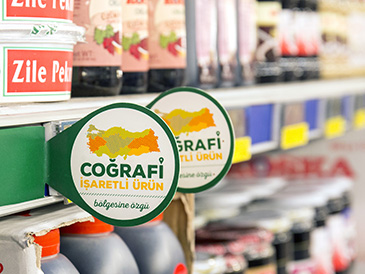
METRO Turkey is also committed to creating greater public awareness of products with the GI label. Customers can already find more than 130 of these products in Turkish wholesale stores. The national subsidiary supports local suppliers with the registration processes and has helped raise awareness of the issue through its activities at government level.
Supporting the culinary heritage of Bulgaria and Poland
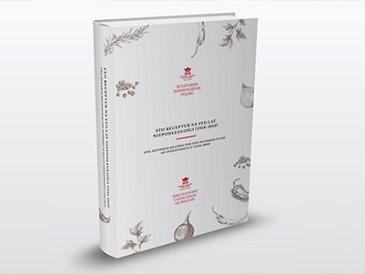
METRO Bulgaria has launched a competition to celebrate the country’s culinary heritage. The aim is to collect old recipes – some of them dating back centuries – that have shaped the taste and culture of Bulgaria. Professional chefs and amateur cooks are all eligible to take part and send in recipes. The European Commission has included the project in its European Year of Cultural Heritage 2018.
To raise awareness for local culinary traditions among commercial customers in Poland, MAKRO Poland launched its Polish Culinary Treasures programme in 2018. The programme imparts knowledge and builds up a network around the issue. In the first 10 training sessions, 200 participants were introduced to around 30 historical Polish recipes – interpreted by famous chefs. To mark the 100th anniversary of Polish independence, MAKRO Poland also published a book of 100 traditional recipes.
Regional meat specialities from Austria

METRO Austria is gradually expanding its meat range, adding regional and sustainably produced specialities. For instance, meat from cows in the Reine Lungau biosphere park has been available exclusively from our wholesale store in Salzburg since October 2018. Together with small-scale farmers in the park area, METRO developed the idea of marketing beef from the cattle as well as milk. The cows are fed almost exclusively on natural green fodder from high pastures at an altitude of over 1,000 metres. METRO has also added Triestingtal beef to its product range in Lower Austria. And in January 2019, it will start selling Styrian and Lower Austrian Duroc pork with the AMA (Agrarmarkt Austria) quality label.
METRO Ukraine expands its Fermove project
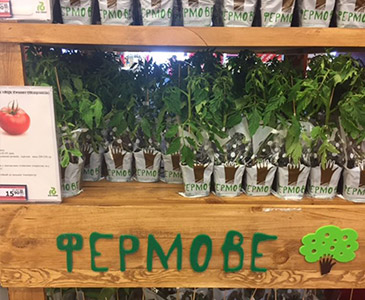
Since 2016, METRO has been collaborating with the Ministry of Agrarian Policy and Food in the Ukraine and with seed suppliers to support local farmers. The partners distribute seed and fertilisers to the local farmers, who then supply the harvested produce to METRO. By committing to buy their produce, METRO is able to offer security to small producers in particular, and strengthen their development. In our wholesale stores, responsibly grown, healthy, local products are marketed under our Fermove own brand, which lets our customers support local production structures through their buying choices.
Since 2017, METRO has been using the same principle to raise seedlings, for example for tomato, pepper and aubergine plants, which are then sold in the stores. It is a way of motivating our commercial customers to become growers themselves. In a next step, we plan to expand Fermove into a global platform selling fresh produce from the Ukraine locally and across the EU.
Sustainable product range
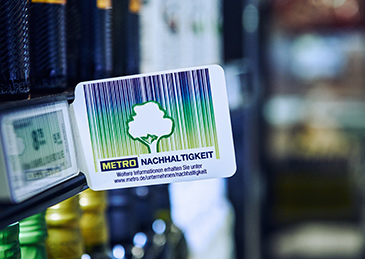
By supporting customers and helping them make buying decisions in favour of sustainable products, we are also promoting a sustainable lifestyle. In order to provide better customer guidance, we use labels that certify products according to specific sustainability standards. Our own brands are likewise labelled accordingly. We additionally provide information in our stores and talk to our customers. We are convinced that by expanding our range of responsible products, we are stimulating demand and consumption of these products and helping – in a circular-economy kind of way – to shape a responsible future along the entire value chain.
Our sales lines’ product ranges include fair-trade articles and food products that bear the European organic symbol. In financial year 2017/18, sales of fair-trade products at METRO Wholesale and Real in Germany totalled more than €13 million. This figure includes items featuring the Fairtrade or the GEPA label. During the same period, our sales lines achieved Germany-wide sales totalling nearly €146 million with products which are certified in accordance with the EU regulation on organic farming. Our range also includes products from sustainable fisheries and aquaculture. We define these as products bearing the Marine Stewardship Council (MSC) logo, the Aquaculture Stewardship Council (ASC) logo or the EU organic and GlobalG.A.P. labels. In financial year 2017/18, METRO Wholesale and Real generated sales of over €115 million in Germany with this sustainable fish range. Real generated sales of €394 million with regional products in the past financial year. Both sales lines are increasingly offering its customers products from sustainably managed forestry. Revenues generated with products bearing the label of the Forest Stewardship Council® (FSC®) or the Programme for the Endorsement of Forest Certification (PEFC) was around €42 million. Due to our customers’ increased interest in more sustainable products and the potential this offers for our business, we keep working on enlarging the proportion of more sustainable products in our portfolio. Real has already met its overall target of generating 30% of turnover in its food and near-food ranges from sustainable products by 2019. To keep moving in the same direction, the company has set a new target: by 2030, Real plans to stock a 100% sustainable range of food and near-food products. Adapted targets have been set for the individual product groups to help the company achieve its overall goal. The focus is being placed on regional products, fruit and vegetables from permaculture production and projects in the area of animal welfare.
We are constantly working on collecting similar figures for all the other countries in which METRO is active. Although the differences between the data systems in the various countries make this a challenging process, we made significant progress in financial year 2017/18. 16 of 25 METRO countries have provided their data, e.g. on products certified according to the EU Organic Regulation or with the seal of the MSC, the ASC, the EU Organic Label and GlobalG.A.P. However, due to a lack of uniform methodology and data quality, the data on sales outside Germany cannot yet be reported in a form suitable for testing.
Looking at METRO Wholesale’s 2020 commitment regarding sustainable palm oil, in financial year 2017/18, the company has made great progress thanks to our International Trading Offices: over 50,000 tonnes of French fries and other potato products have been sourced with sustainable palm oil (Mass Balance certification) and delivered to 24 METRO Wholesale countries.
More key performance indicators for the Prosperity area of responsibility can be found in the chapter 'Key Performance Indicators'.
Activities in the countries
Sustainable Fish Initiative in Japan
Quality standards for fresh fish are higher in Japan than in any other country. To increase sustainability standards in procurement as well, our Japanese subsidiary launched the Sustainable Fish Initiative in April 2018. The project is based on partnerships with suppliers, and providing more information for commercial customers to promote environmentally friendly, economical solutions. There have been preparatory meetings with the ASC, MSC and Chefs for the Blue – a new project involving top chefs from Tokyo – as well as government authorities, ministries, marine scientists and NGOs. METRO Japan will continue to expand the proportion of ASC- and MSC-certified products in its assortment between now and 2020 and introduce MSC and ASC Chain of Custody certification in its stores. As a fish expert, METRO Japan hopes to be selected as a preferred supplier for the 2020 Olympic Games in Japan.
Healthy product range in Germany
We aim to enable traders and their customers to eat a healthy diet and, in so doing, to promote sustainable lifestyles. Therefore, we not only carry a comprehensive range of fruit, vegetables and fresh products, but are also expanding our selection with the addition of vegan and special products such as lactose- and gluten-free items for consumers with food intolerances. Customers in German METRO wholesale stores can now find a range of 210 vegan products, including numerous cheese and meat alternatives, and lactose- and gluten-free products.
International customer survey on health and well-being
Between August and October 2018, the Corporate Quality Assurance Team at METRO AG conducted a customer survey in our 25 METRO countries to evaluate our healthy eating strategy and develop new measures. What do our commercial customers regard as a healthy product? What role do such products play in the success of their business? And how can we support them? The aim of the questionnaire, which comprised each 10 questions for our 3 customer groups (HoReCa, Traders and SCO), is to enable our customers to benefit more fully in future from the trend towards healthy lifestyles. In total, 20,225 customers completed all or part of the online survey. The top 3 findings are: the importance of 1) ultra-fresh, local produce, especially fruit and vegetables, 2) reformulated products identified by the phrase ‘less ...’ and 3) ‘free from’ foods, for example gluten-free products. Vegan and vegetarian products also fall into this last category.
Sharing expertise
As a retail company with global operations, we can play a key role in sharing expertise, particularly in the area of sustainable sourcing and sustainable product ranges. We are a knowledgeable point of contact, supporting our commercial partners at all our locations through activities with a regional focus. This is another way in which we help ensure that sustainable projects are effective.
As an example, MAKRO Poland’s Chef for Chefs programme is a communications platform for commercial customers in the hotel, restaurant and catering sector. The aim is to intensify discussions with our partners and experts and to pass on knowledge about trends such as culinary innovations in the industry. Since the project started, we have already organised 24 events in 12 cities with around 2,500 participants.
Fighting food waste through data transparency
One of the most important and effective fields of activity for securing our future is the fight against food waste. This is an area where METRO can make a real difference – in our own business operations, but especially through our suppliers and customers and through their customers in private households. Data collection and customer communications aimed at changing consumer behaviour are important tools in the fight against food waste. METRO Turkey is active in this area: around 25% to 40% of the 49 million tonnes of fruit and vegetables produced in Turkey each year are lost in the production and delivery chain. This is the finding of an investigation carried out by METRO Turkey in collaboration with the TÜBİTAK Scientific and Technological Research Council in 2016.
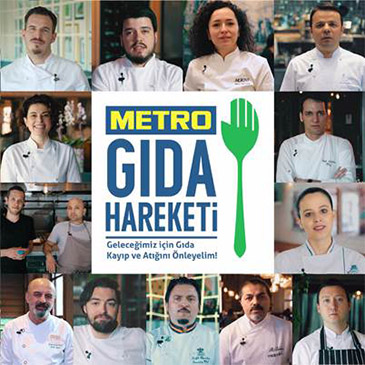
In order to create a broader awareness of this problem and to reduce food waste and food loss, METRO Turkey launched a comprehensive communications campaign in 2017, along with a large number of activities. These include the METRO Food Initiative, which was set up as part of Restaurant Week 2017: together with 50 top chefs and more than 100 restaurant owners, the project raised awareness of the issue of food loss and food waste through a number of channels, including via social media and videos.